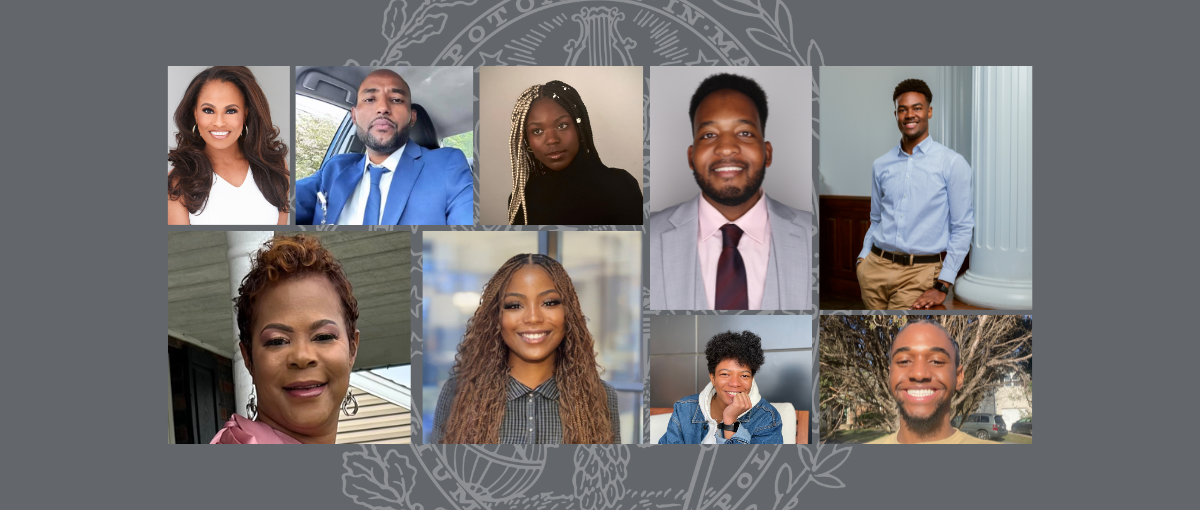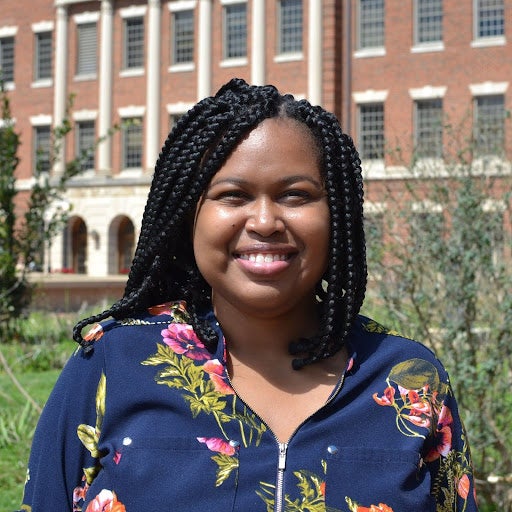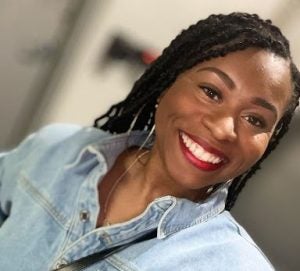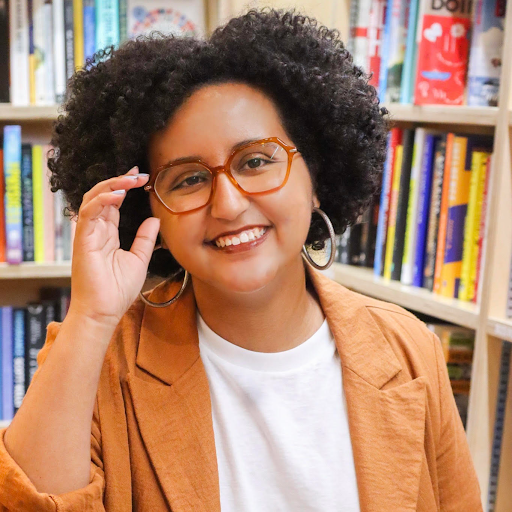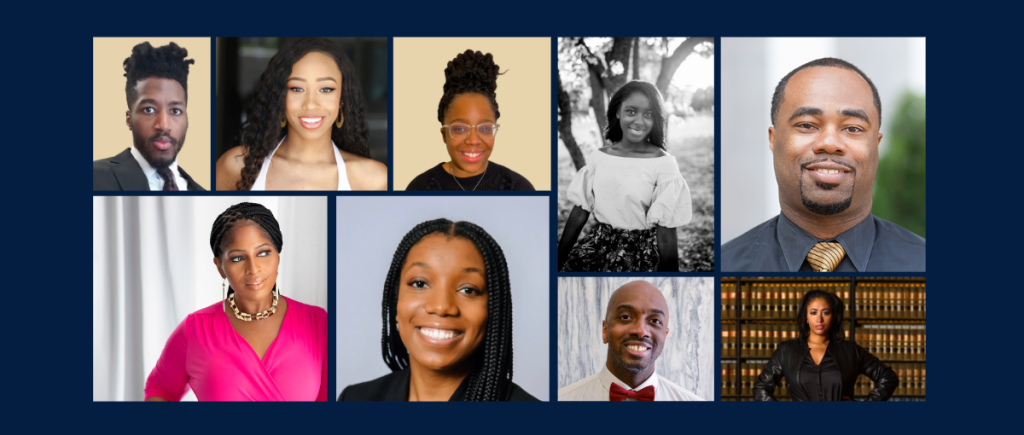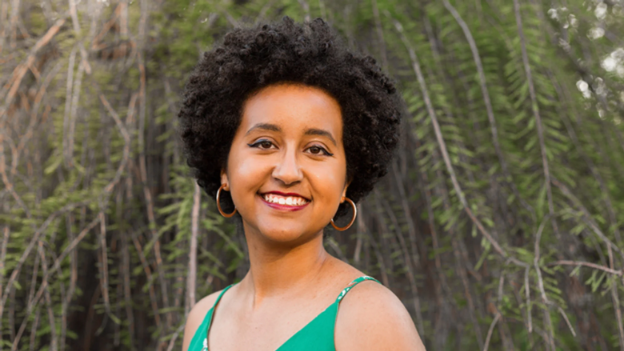A Mosaic of Cultures: Graduate Students Celebrate Black History Month – Volume 2
The Graduate School joins the nation in celebrating and honoring Black history, culture and achievements during Black History Month. The inspiration for this celebration began in 1915 when historian Carter G. Woodson founded an association dedicating a week to honor and promote Black history and achievements. It was made official when President Gerald Ford recognized February as Black History Month in 1976.
We invite you to discover the different ways graduate students, staff and alumni are celebrating Black History Month as it relates to themes of legacy and pride, lived experience and allyship, and their unique journey to Georgetown.
A History of Lived Experiences
Black experiences, histories, stories and backgrounds are not singular. To understand the black experience is to recognize the diversity within each and every story told.

Berhanu Dugasa
“More people need to understand the diversity and complexity of the Black experience. Our community is not monolithic; our stories, backgrounds, and perspectives vary widely. Appreciating this diversity is key to understanding the collective experience of Black people.
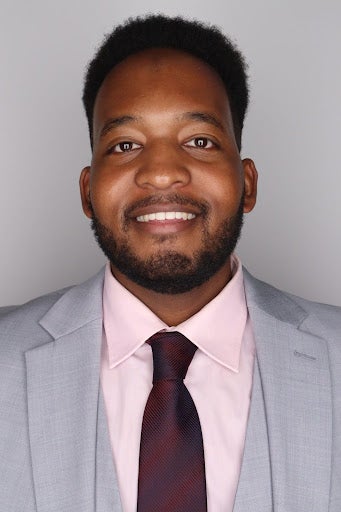
Shewina Hassani
“What makes me most proud to be a part of the Black community, is the diverse lived experiences, culture, and people that exist within it.”
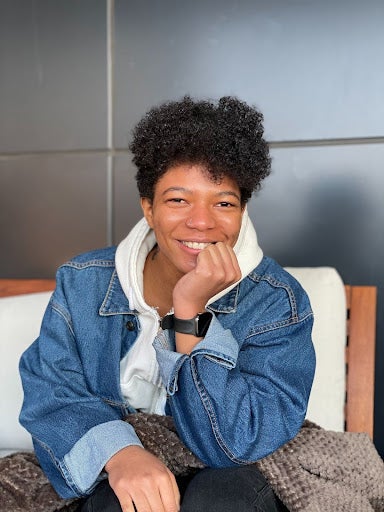
Kennedy Copeland
“We aren’t a monolith. I listen to country music which surprises people sometimes.”
“Our stories are as varied as the shades of our skin, and each narrative contributes to the rich tapestry of our culture. Recognizing that the Black experience is not monolithic but a mosaic of unique histories, perspectives, and achievements is essential for fostering true understanding.”
Jasmine Mitchell (G’25)
Legacy & Pride
The Black community continues to show resilience, achieve greatness and inspire future generations despite a history of systemic adversity.
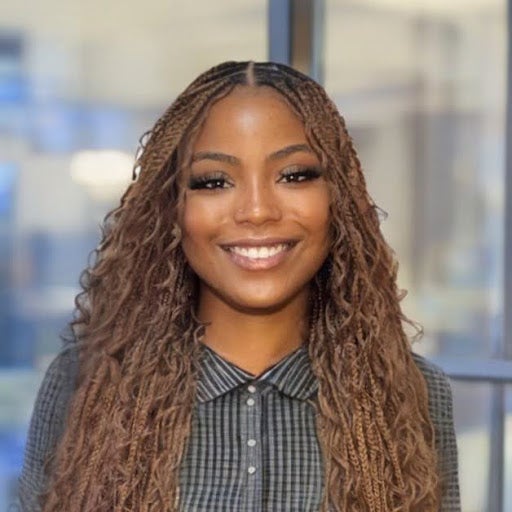
Jasmine Mitchell
“Being a part of the Black community fills me with immense pride because of the resilience, strength, and cultural richness that define us. Our community has a history of overcoming adversity and contributing significantly to art, science, politics, and every facet of society. The sense of unity, shared heritage, and the continuous pursuit of justice and equality within our community are sources of inspiration that make me immensely proud.”
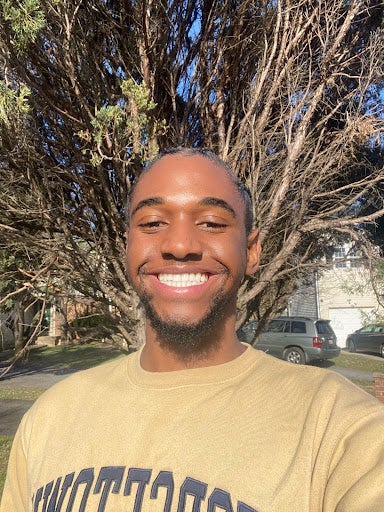
Wedly Cazy
“As a Haitian-American, I take pride in my rich cultural heritage. This pride stems from celebrating my diverse contributions to Black cultures and the strength from my roots. The Black community has faced discrimination and systemic injustices throughout history. Despite these obstacles, individuals in the Black community, like me, have shown incredible resilience. Black individuals have significantly contributed to various fields, including arts, sciences, literature, sports, politics, and social justice. These achievements, whether on an individual or collective level, give me a sense of pride in my community. The Black community has unity, solidarity, and collective action in the pursuit of social justice, equality, and the betterment of the community. Seeing an increased representation of Black voices, experiences, and successes in various domains has fostered empowerment and pride within me. It can inspire future generations, challenge stereotypes, and promote positive change. I will FOREVER root for everybody Black.”
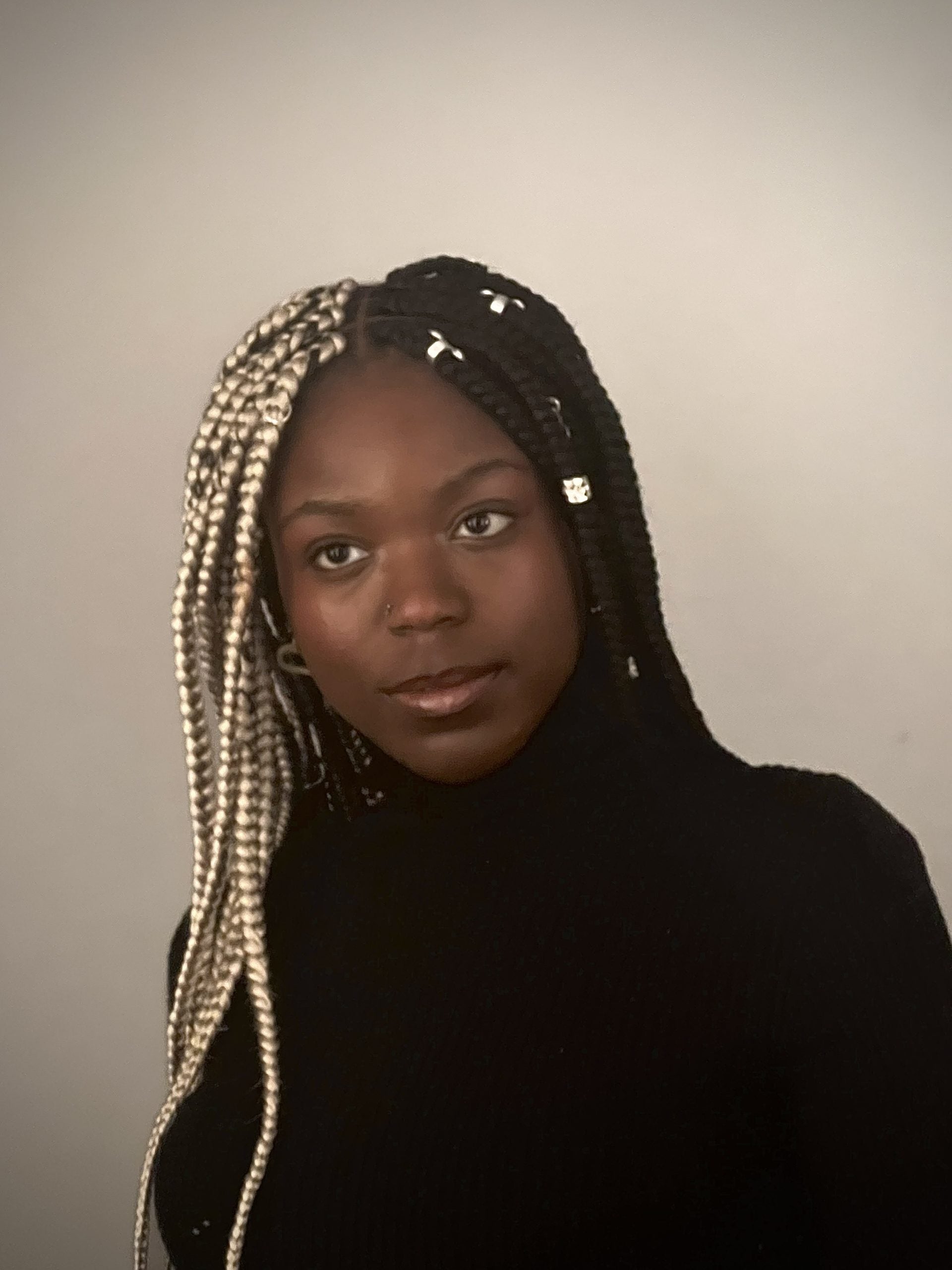
Nnenne Nwangwu
“I feel most proud when I get my hair done or protected in a way that feels most nourishing to my 4c coils. Especially after learning the history behind braids, I now carry them with the utmost grace.”
“I am immensely proud to be a part of the Black community, with our unyielding resilience, rich cultural heritage, and significant contributions in numerous fields despite enduring various challenges. Our community’s ability to inspire hope and drive change continues to be a source of great pride.”
Berhanu Dugasa (G’24)
Journey to Georgetown
Georgetown brings together individuals from all around the world. They might have chosen Georgetown for different reasons but are all here today as Grad Hoyas!
Erika Akers (G’25): “My employer, MedStar Health selects four associates per year to receive a full scholarship to attend Georgetown University and earn the Executive Master’s degree. I applied and was selected as one of the four scholarship winners.”
Wedly Cazy (G’24): “Georgetown’s faculty members bring real-world experience and expertise to the classroom, helping students grow their skills, expand their network, and enhance their public relations and corporate communications career prospects.”
Kennedy Copeland (G’25): “Georgetown was my first choice since the SFS school is world-renowned. When I was looking for programs, I was most interested in Global Human Development, and it’s been a great choice for me. I love my program and enjoy my cohort.”
Berhanu Dugasa (G’24): “My journey to Georgetown was motivated by a strong desire to excel in the field of clinical quality, patient safety and leadership. The university’s distinguished reputation in these areas and its commitment to diversity and inclusion aligned with both my professional and personal values.”
Alex Grant (G’24): “I felt the Epidemiology program was rigorous enough to prepare me to be an impactful epidemiologist. I also wanted a change of pace and to experience all four seasons for the first time.”
Shewina Hassani (G’24): “I chose to attend Georgetown University because of its proven track record of being a reputable and elite institution.”
Jo Lethermon (N’24): “Georgetown was my dream school for this terminal degree. I wanted nothing more than to be at an institution that values care of the whole person and integrates cultural sensitivity, trauma informed care, and awareness of social determinants and health disparities into their teachings.”
Jasmine Mitchell (G’25): “The university’s emphasis on cura personalis, care for the whole person, resonated deeply with my values, inspiring my desire to be part of a community of diverse individuals who are passionate about making positive impact in the world.”
Ziyanda S. Mtshontshi (G’23): “Firstly, Georgetown has a commitment to ethical and holistic leadership, with a strong emphasis on social impact. That is something I resonate deeply with and practice on a daily basis. Secondly, I wanted the best school in DC with a community that is committed to everyone’s growth.”
Nnenne Nwangwu (G’24): “Being in the heart of DC gives my interest in public policy and mental health endless opportunities to grow.”
Cultivate Allyship
Celebrating Black culture, history and achievements should go beyond Black History Month. Throughout the year, seek out a book, movie or lecture to learn more about Black experiences and express your solidarity.
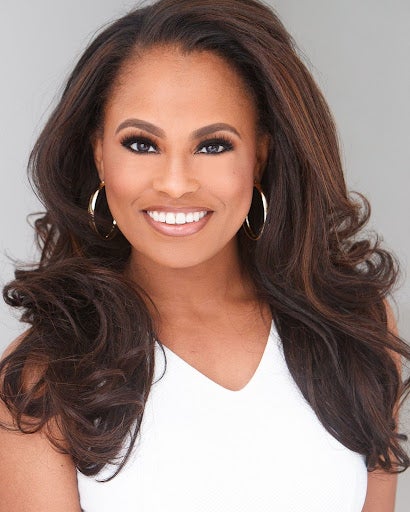
Jo Lethermon
“Dig deeper. Black history month highlights the same “heroes,” it’s not enough to just know Martin Luther King and Rosa Parks. There are so many great inventors, great activists, and just great humans in general that makeup our rich history. Read for yourself, there is so much to discover! Become a vocal ally to help us fight the current issues including the black maternal health crisis, racial disparities in healthcare, social and economic injustices, systemic racism, and implicit bias. Assess and be aware of your own bias. Call out others and correct them in love whenever necessary.”
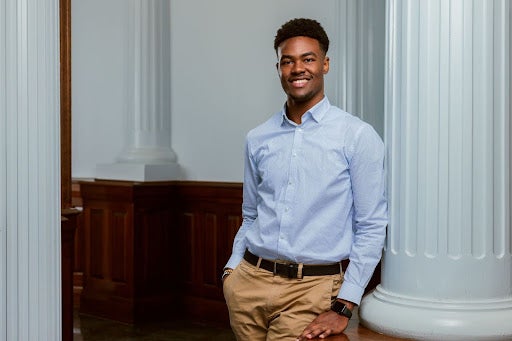
Alex Grant
“People can show solidarity with the Black community by raising their awareness of matters most important to the community, whether through films or readings. Additionally, they can show solidarity by supporting local organizations that are Black-owned/operated.”
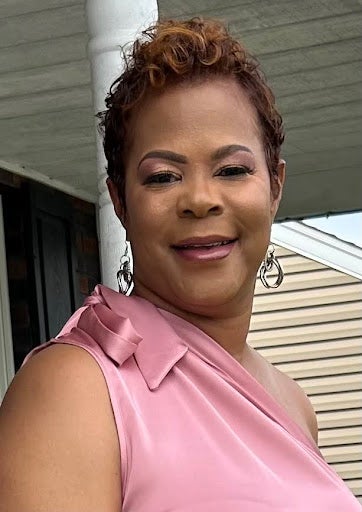
Erika Akers
“Showing solidarity is best achieved by uplifting and celebrating our culture. We must never let our history be altered to fit a political, social or religious agenda.”
“Read books, watch documentaries, and attend lectures that delve into the experiences and achievements of Black people. Understanding the context and issues the Black community faces is essential to being an informed ally, actively listening to and amplifying the voices of Black individuals, and sharing and promoting their work, perspectives, and achievements through social media, conversations, or other platforms.”
– Wedly Cazy (G’24)
We hope the stories of these individuals have inspired you to learn more about Black history and the different ways to honor and celebrate it. Read more stories from Black students, faculty and staff at Georgetown University.
– By Jessica Marr (G’19) and Maya Nguyen
